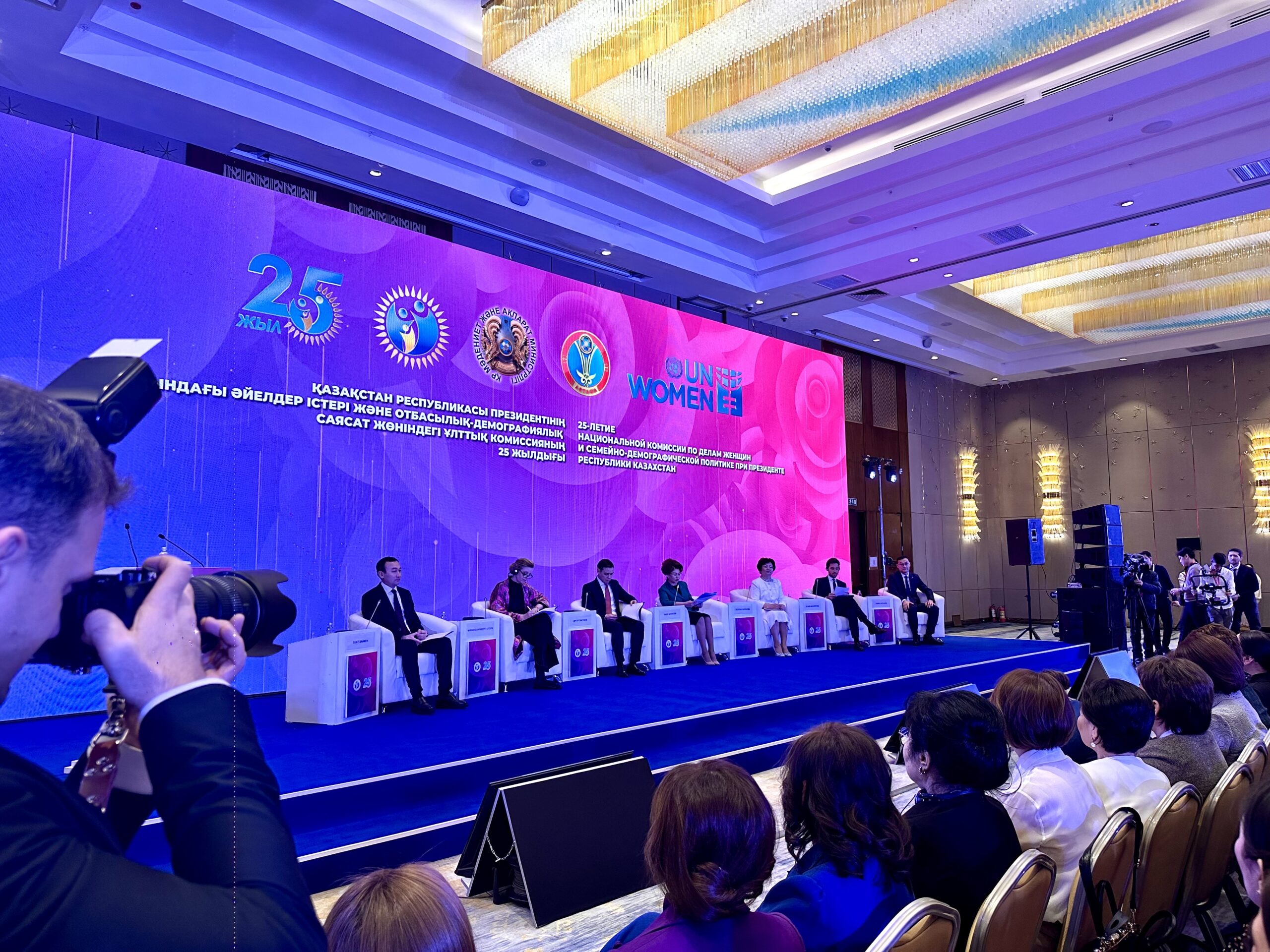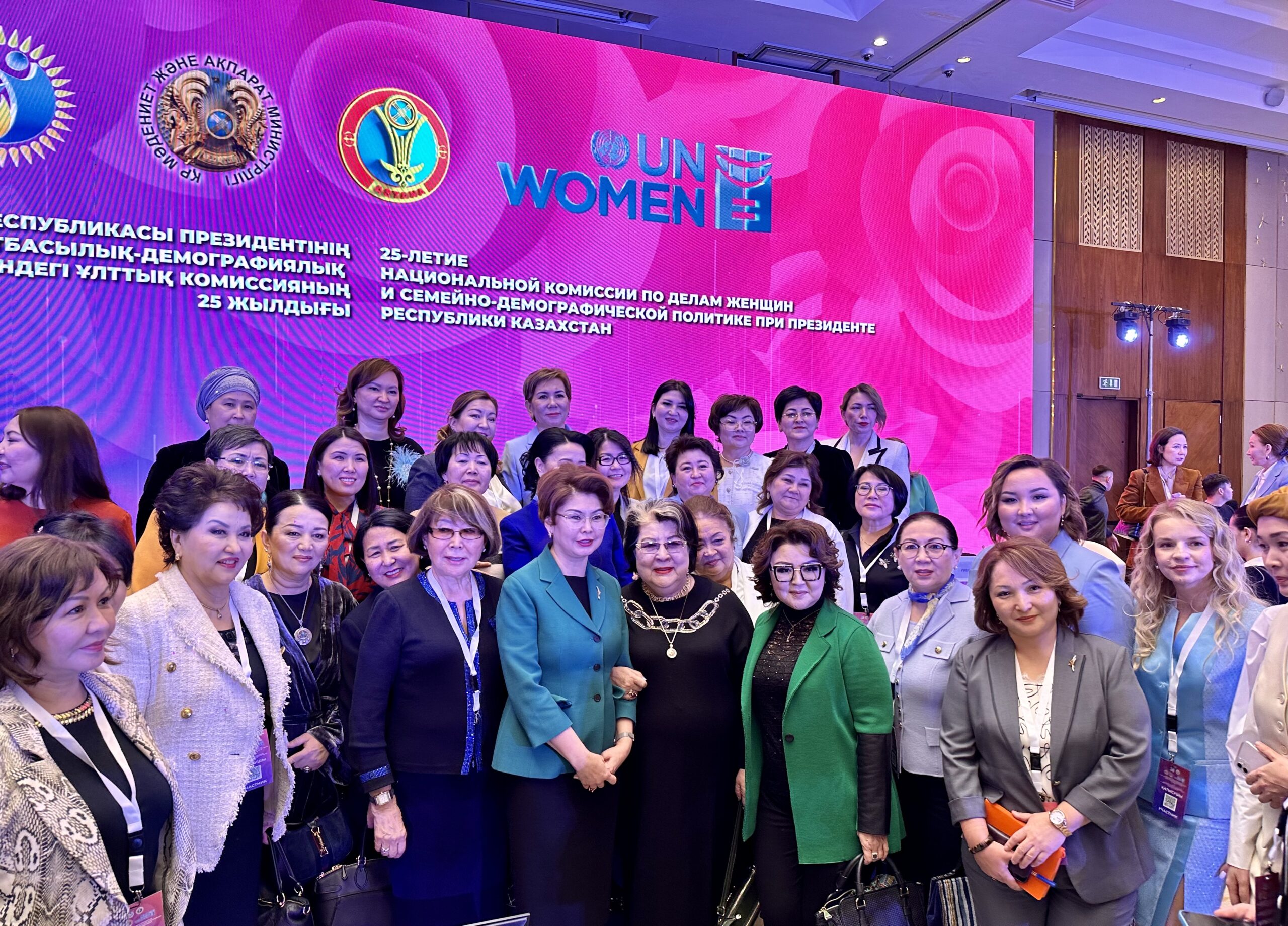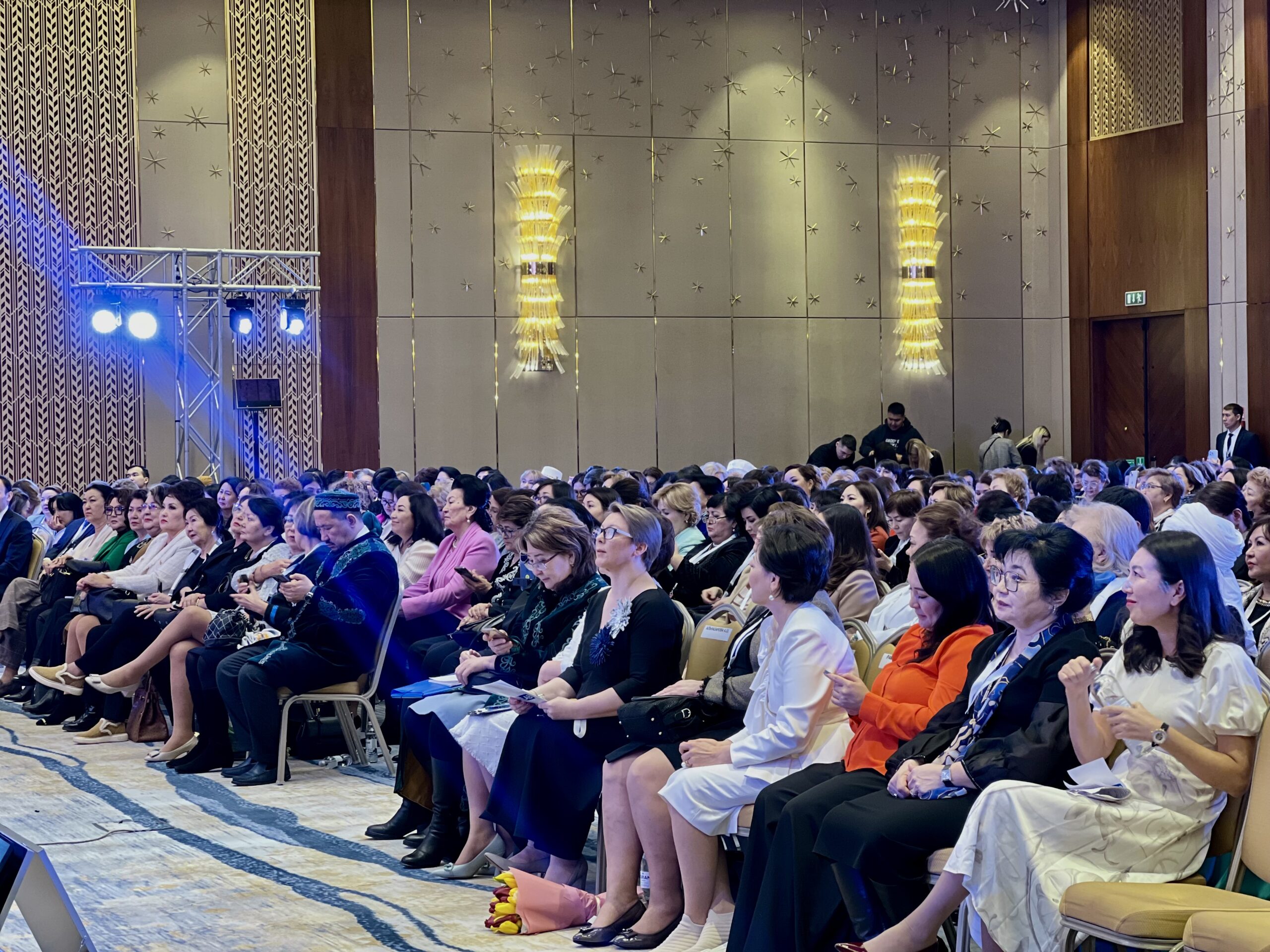ASTANA – The National Commission for Women’s Affairs, Family and Demographic Policy in Kazakhstan held its 25th anniversary forum in Astana on March 6. The discourse covered the key results of the activities carried out by the advisory and consultative body under the President of Kazakhstan.

Photo credit: The Astana Times.
Opening the event, Kazakh Minister of Culture and Information Aida Balayeva, the chair of the commission, read the congratulatory address of the head of state.
“On behalf of the President of Kazakhstan Kassym-Jomart Tokayev, allow me to congratulate the participants of the forum on the 25th anniversary of the commission. The commission ensures gender equality, preserves family institutions, as well as protects women and children. This is a very important body that ensures coordination of women’s activities,” she cited.

Photo credit: The Astana Times.
At the beginning of this year, the population of the capital reached 1,430,136 people, according to the Bureau of National Statistics. Half of the citizens are women.
Deputy Akim (Mayor) of Astana Yeset Baiken underscored the importance of female empowerment for the development of the country’s socio-economic domains and its political life.

The forum participants. Photo credit: The Astana Times.
“Nearly 90,000 small and medium-sized enterprises (SMEs) in Astana are led by women. More than 75,000 women work in healthcare and education. We have also launched 120 professional courses for female representatives,” he said.
Two months ago, the commission approved the new membership. Sholpan Karinova, one of the newly elected members, joined the commission on behalf of Kazakhstan’s ruling Amanat party.
In terms of women’s advancement in politics, Karinova noted that the Amanat party boasts a “significant 65% female membership.”
“In addition, women represent 17.7% of deputies in the Mazhilis [the lower chamber of the Parliament] and 22.4% in regional maslikhats [local representative bodies]. The professionalism, experience, potential, and empathy towards people equip women to make crucial decisions in the political arena,” she said.
The experts of the commission participated in developing amendments to the Social Code, Administrative Offences Code and the Criminal Code. According to Karinova, the ongoing activities of the commission pay special attention to strengthening the legal culture and ensuring zero tolerance for law violators.
In cooperation with the Samruk Kazyna Sovereign Wealth Fund, the commission has been implementing seven socially valuable initiatives, including three charity projects.
One of them is the Salamatty Kazakhstan train project, which was launched to examine and provide medical, psychological, legal and mediation assistance to citizens living in remote areas and villages.
“We have also been working to ensure that the rehabilitation centers are available for the children with special needs and their parents. In most cases, these parents are mothers,” said Samruk Kazyna Managing Director Gibrat Auganov.
The commission prioritizes tasks of fulfilling international obligations in family and gender policy, as well as the development of international cooperation.
“The United Nations (UN) focuses on the Sustainable Development Goals (SDGs). The SDG five, gender equality, is at the core of the system,” said United Nations (UN) Resident Coordinator for Kazakhstan Michaela Friberg-Storey.
She commended Kazakhstan’s efforts in improving its positions in gender development. Today, Kazakhstan ranks 62 out of 146 countries in the Global Gender Gap. The report published by the World Economic Forum (WEF) showcased the country’s progress in economic participation and political empowerment.
Kazakhstan has ratified all conventions covering the rights of women, including the Convention on the Elimination of All Forms of Discrimination against Women, and eight conventions of the International Labor Organization (ILO). This was highlighted by Kazakhstan’s Human Rights Commissioner Artur Lastayev.
In 2021, Kazakhstan also joined two Coalitions of Action of the Generation of Equality Forum, committing to combat gender-based violence and ensure economic justice and rights.
“We also got rid of the list of professions prohibited for women. This opened us new opportunities in transport and construction. The commission follows the plan of actions that need to be implemented by 2030. This includes countering domestic violence and protection of women rights,” said Lastayev.
As part of the forum, public figures, such as Deputy Chairwoman of the commission Lyazzat Suleimen, Advisor to the President of Kazakhstan on Science and Innovation Kunsulu Zakarya, the rector of the Aktobe Regional University Laura Karabasova, the chair of the Scientific Center for Obstetrics, Gynecology and Perinatology Zauresh Amanzholova, religious scholar and theologian Nurlan Bayzhigituly, and the international expert on creative thinking Marina Derkach delivered motivational speeches on their professional growth and called for the further expansion of opportunities for women.
Today, the key priorities of the commision include enhancing legal awareness, enforcing strict penalties for lawbreakers, and fostering inclusive public dialogue among diverse groups.
